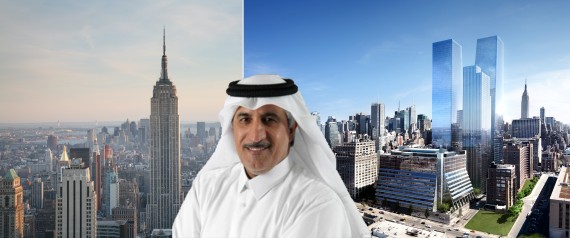Since the start of 2015, Middle Eastern investors have ramped up their activity in New York City’s commercial real estate market.
Middle Eastern investors pumped $6.5 billion into New York City in the past 18 months ending in June, Bloomberg reported. New York City greatly outpaced Los Angeles, which saw an infusion of $999 million during that time period, and Washington D.C., which saw $861 million in CRE investments. Those cities were followed by Atlanta and Miami, which respectively had $852 million and $517 million in investments.
Commercial real estate in the U.S. was particularly attractive to sovereign-wealth funds during this time frame due to favorable exchange rates and economic growth, according to the report by CBRE. The purchases of nearly $10 billion of U.S. commercial real estate by Middle Eastern investors in the first half of 2016 represented over 20 percent of global cross-regional investment, CBRE [TRDataCustom] said.
In 2015, the Qatar Investment Authority announced that it would invest $35 billion in the U.S. over the next five years.
So far, major deals in New York City have included the QIA’s partnership with Brookfield Property Partners’ Manhattan West mixed-use development. The QIA acquired a 44 percent stake in the five-building project, which includes a 62-story, 844-unit residential tower and One Manhattan West, an office project slated for completion in 2019.
Last month, the fund acquired a 10 percent stake in the Empire State Building through a $622 million deal for a minority stake in publicly-traded Empire State Realty Trust (it was not included in CBRE’s analysis). The QIA’s move was particularly interesting as sovereign wealth funds don’t often buy a stock position in real estate companies. Instead, sovereign wealth funds usually directly buy the stakes in buildings.
In its January 2016 issue, The Real Deal looked at some of the world’s largest sovereign wealth funds and their New York City assets. [Bloomberg] — Kathryn Brenzel
